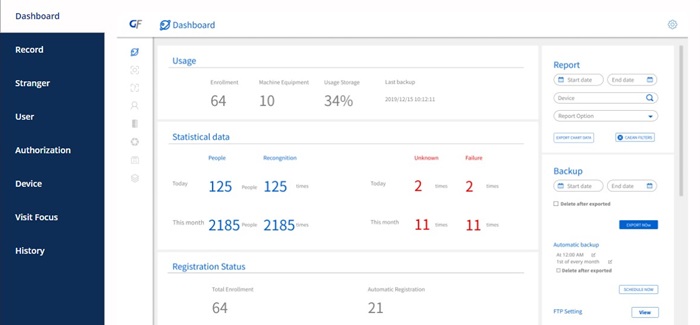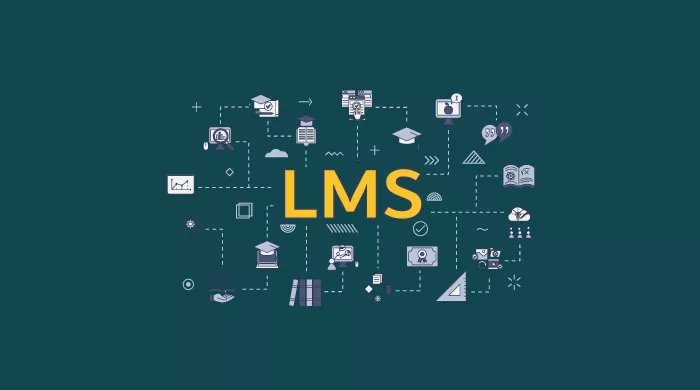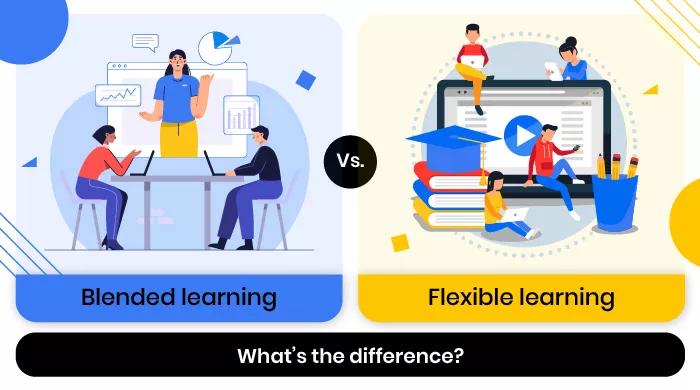In this rapidly evolving era of information and communication technologies, rediscovery and re-conceptualization of libraries may soon become a necessity. The functionalities and operations of the libraries that we see today are different from the activities that happened a few decades back. Earlier, members had to visit the library to pick up and drop off books, and the librarians managed the records manually. Although it was open to all, it was restricted to certain geographical boundaries. Apart from these limitations and challenges, several libraries saw destruction due to natural calamities, war and armed forces attacks, like the one in 2003 when Iraq was attacked by the American and British forces and the National Library was laid in ruins. The fire at the St. Petersburg Academy of Sciences in 1988 destroyed more than 300,000 books and audio materials, which expanded to three and a half million more books. The consequence of such a loss of great book collections is huge. Such calamities call for a modern approach where the resources are preserved digitally and managed without loss. Any library serving urban, suburban, or rural members must realize the need to transform digitally. Modern digital libraries include a vast array of information, resources, and audio and video collections that offer digital access to remote members. To manage these modern digital libraries, one needs to be aware of the library automation software, open access resources, digital approvals, digital management of procurement and distribution of the resources, etc.
After adopting automation, libraries can streamline many of the manual and time-consuming processes such as cataloging, inventory management, subject indexing, etc. Artificial intelligence allows libraries to adeptly manage collections, circulation and cataloging of books while providing AI-powered recommendations and reading suggestions to the members. When combined with AI, automation tools can significantly boost productivity, enable easy access to the systems and enhance operational efficiency.
Here, in this blog, we try to derive how future libraries will function in the era of automation and artificial intelligence.
Why AI and Automation are Required to Manage Libraries?
Challenges associated with data handling, budget constraints, staff shortages and burnout, cataloging, quick access to resources, etc., have become very critical to address, which demands for advanced automation tools instead of legacy software systems or manual approaches. Librarians and library vendors need to keep a record of every book, journal, article, research paper, and other data associated with borrowing, renewal, submission, availability, etc. In addition, operations such as maintenance, answering user queries, collection, fines, etc., also need the librarian's attention, resulting in more work pressure. Apart from this, they also generate a massive amount of annual revenue which calls for efficient library management. Only AI and automation can ease these challenges. These technologies are capable of minimizing the intervention of human capabilities to a decent extent. It saves time and cost and simplifies the library functions.
What is Library Automation Software?
Library automation tools can automate time-consuming tasks like cataloging, circulation, patron management, purchases, reporting and analytics, etc., apart from effectively managing library resources.

What is AI-Powered Library Automation Software?
An AI-powered library automation software leverages advanced deep learning, machine learning, machine vision, etc., technologies to automate, innovate, and optimize library operations. AI-powered library automation systems differ from legacy ones in terms of advanced data handling capabilities, better search and navigation, proactive assistance, predictive analytics, immersive learning experiences and various other factors. While traditional systems can automate only a few tasks, AI automation systems can also automate additional tasks like fine management, appointment scheduling, and resource tracking with enhanced accuracy and efficiency.
Benefits of AI Library Automation Software

Library automation software is deployed across libraries worldwide owing to its enormous benefits. Some of the major benefits of implementing library automation software are as follows;
-
Reduces operating costs
-
Automates manual tasks
-
Improves search and retrieval processes
-
Streamlined workflow
-
Provides personalized recommendations
-
Offers 24/7 support
-
Eliminate data errors
-
Personalizes library services as per user intent
-
Increases resource accessibility
-
Secure data analysis and management
-
Better user experience
-
Proactive maintenance
-
Informed decision-making
-
Increased efficiency
Applications of AI and Automation in Libraries

Subject Indexing
With the increase in the number of resources and documents, AI and automation tools can eliminate various challenges associated with subject indexing. Artificial intelligence tools for libraries with their advanced capabilities, can extract keywords, topics, and other data from text and images of books to automatically assign subject headings, classify the materials and understand the relationship between different concepts for more precise indexing. Artificial intelligence can easily analyze the reviews, feedback and search patterns of the users to improve the accuracy of metadata and subject access process. Automated AI-based subject indexing is increasingly being used in libraries like Finnish National Library of Finland.
Cataloging

AI integration in library automation tools can simplify the addition of books, journals and other materials to the library catalog. AI and ML algorithms can analyze a huge amount of data to automatically classify and organize library materials, create bibliographic records from digital files, suggest proper subject headings, integrate catalog data with external knowledge bases, etc., as per content relevancy. For example, as reported, artificial intelligence is optimizing the cataloging process of the Library of Congress by creating standardized catalog records and automatically generating bibliographic data. AI and automation tools can significantly reduce the workload and ensure consistency without any errors and discrepancies in the entire cataloging process. A few AI tools also support integration with the Online Public Access Catalog to find items in the library within seconds.
Self-Service
According to Microsoft research, 92% American consumers expect a self-service portal from their service providers. Libraries can attract and retain people by offering them self-service facilities like chatbots, virtual assistants, automated checkout & return kiosks, etc. The AI-powered chatbots and virtual assistants use advanced machine-learning algorithms to receive and address the queries of patrons instantly. These are designed to quickly schedule an appointment, check book availability, search book locations, notify patrons of approaching submission dates, etc. In addition, automated checkout and return kiosks allow patrons to return or borrow materials without the supervision of staff easily. For instance, Carnegie Mellon University library uses Ask Andy, an AI-powered chatbot, to address user questions instantly.
Reservation Management
Artificial intelligence-driven library software acquires critical information about the borrowed resources from systems like QR and RFID readers to streamline and automate the reservation process. Through this, patrons can reserve resources online, search for available resources, gain real-time information on the availability of resources, receive alerts for overdue items and get automated notifications when the item is available for borrowing.
Inventory and Stock Management

Earlier, inventory and stock management processes of libraries were complex and time-consuming. However, AI inventory and stock management tools for libraries are efficient in performing operations like smart inventory optimization, reorder point calculation, safety stock calculation, multi-location inventory management, demand forecasting, smart shelving, etc. The AI tools using the insights from RFID tags and sensors can identify rarely used resources, locate the inventory and stock levels in the libraries, optimize shelf space, etc. These intelligent automation tools can also forecast resource consumption, book demand, stock shortages, etc., to help librarians maintain a sufficient number of copies of resources in peak hours.
Document Processing
Library staff often spend time and money manually processing and updating different types of library documents that can now be easily carried out with the help of AI and automation. Artificial intelligence tools, in combination with machine learning algorithms and technologies like scanning, optical character reading, image processing, etc., can easily automate the information retrieval, data validation, and document analysis processes in libraries, from invoices to research papers. Apart from these, intelligent document processing through AI is beneficial in quick document classification, content summarization, document sorting, error reduction, etc.
Electronic Resource Management
While library automation systems help libraries digitize resources like journals, books, databases, etc., AI can assist in properly managing these electronic resources without any errors. This is beneficial for ensuring a better customer experience for 40% users who prefer borrowing digital content. Proper electronic resource management enables patrons to easily access different ebooks, e-journals and other digital materials from the large stack. Librarians benefit from this in easily tracking resource access, fine collection, due dates, reservations, etc.
Automated Check-In/Check-Out
AI-based library automation software comes with robust features like Radio-Frequency Identification (RFID), self-service portals, etc., to automate the check-in and check-out of books. The RFID tags installed in the books transmit the data to the RFID reader-enabled self-service portals, streamlining the borrowing, submission and renewal of books. Through this, the long queues in the libraries can be reduced, ensuring optimized waiting times for other services. Some tools like Gigabyte Smart Library System also leverage AI facial recognition to automate the book check-out process.
Scanning and Bar-Coding
AI-powered scanning and barcoding systems use complex machine learning models to process and interpret the information from the barcodes accurately. Through these algorithms, the barcoding systems can quickly recognize obscured barcodes, analyze the borrow/submission and renewal patterns, alert about double entries, identify causes of interferences, generate customized barcodes, etc., with better accuracy and speed.
Virtual Learning

Another useful application of AI-based library automation tools is better virtual tutoring and the learning experience of users. Artificial intelligence tools can be used in libraries to personalize learning paths, recommend relevant learning resources to users, generate feedback surveys and assessment forms, gamify books, create immersive experiences, integrate virtual assistants, automate content curation, offer adaptive learning platforms, etc. For instance, Penn Library leverages AI and automation to help students learn more effectively, provide better learning experiences and increase student engagement.
Implementation of Discovery Systems
According to a 2023 survey, around 75% of students did not find librarians helpful in getting access to the desired resources. Such inefficiency can easily be sorted by implementing AI-integrated discovery systems. Discovery systems refer to the tools used by the users and librarians to search books, journals, research papers, etc., from the library resources. AI can integrate such functionalities into the library automation software to provide a single interface for a seamless search experience. With such integration, users can easily search, access and check out the required resources without leaving the tool, meaning higher satisfaction levels.
Personalization
AI-driven library automation tools, using their data analytics and machine learning capabilities, can analyze the learning history and preferences of the patrons to determine their interests and provide relevant reading recommendations. Seattle Public Library uses the “Your Next 5 Books” recommendation tool that collects some information from the users and suggests 5 relevant books to read.
Customer support
Libraries can also use artificial intelligence to support customer service functions to quickly resolve frequently asked queries of patrons. This is mainly done using AI-powered virtual assistants that offer instant support to patrons, answer frequently asked questions, address research queries, guide users across libraries and resources, etc. Not only this, but AI virtual assistants in libraries also inform patrons about new resources, upcoming events and other relevant research updates. They ensure 24*7 customer support to the patrons, improving their overall satisfaction and experience.
Process Automation
Reportedly in a campaign study conducted in Wales, 77% of libraries did not have a specialized staff to look after the library processes. This significantly hampers different functions of libraries, from borrowing/returning a book to invoice and document management. AI can automate those tasks that don’t require specialized staff, such as borrowing/returning books, invoice management, document processing and classification, etc. Besides these tasks, artificial intelligence can also automate alerts of new notices, visitor data entry, email management, etc., saving time for both patrons and librarians in the library.
Top AI-based Library Automation Software

Gigabyte Smart Library System
Gigabyte Smart Library System is a leading library software that streamlines the book checkout process in academic libraries. It leverages AI facial recognition technology, an inbuilt AI engine, customized external APIs and access management features to streamline access control, check-in/check-out and several other processes. Academic libraries widely use it to eliminate the need to reproduce library cards in case they get lost or the appearance of the user changes.

Source: Gigabyte Smart Library System
Alexandria Navigator Plus AI Library Automation Software
Alexandria Navigator Plus AI library automation software is a real-time search tool for libraries that eliminates the need for metadata. It comes with extensive filtering, a customizable interface, mobile access, easy customizations, SIS integration Bundle APIs, etc., allowing library users to integrate and access various library databases on a single platform. The demo and pricing information is available upon consultation with the company.

Source: Alexandria
Librari AI-Powered Learning Assistant
Librari AI-powered learning assistant is one of the leading tools for academic, school, state, corporate and public libraries to acquire comprehensive information on a large number of topics and subjects. It leverages ChatGPT to answer who / what / where / when questions associated with books, recommend books and resources to patrons, summarize complex content, analyze literary themes, create bibliographies, etc. It is freely available through participating libraries besides a 14-day free trial upon consultation.

Source: Librari
Talpa Search
When it comes to an efficient search tool for libraries, Talpa Search is probably the one among the best for understanding and addressing unusual search queries from users. The tool, using a combination of AI and authoritative book data, cross-checks the searched query from the subjects, characters and tags data available in the bibliographic records. Then, relevant search results are displayed to the user as per the queries. Talpa is available for free for the users of Syndetics Unbound and LibraryThing.

Source: Talpa
Conclusion
In this modern era, digital technologies like artificial intelligence and automation are rapidly transforming libraries whether academic, public, or private. At present, these technologies streamline library processes like cataloging, subject indexing, customer support, document processing, etc. The functions of library automation tools will increase over time due to the technological evolution of artificial intelligence and automation. Modern libraries such as Palo Alto City Library, Penn Library, San Jose Public Library, Stanford University Libraries, etc., are already investing in AI and automation to enhance their services and operations. At the rate at which AI is making its way to libraries, patrons could experience human-less and fully automated intelligent libraries in the next few years. However, libraries need to consider the AI challenges associated with ethical concerns, lack of staff training, implementation costs, etc., to ensure maximum value and output.








